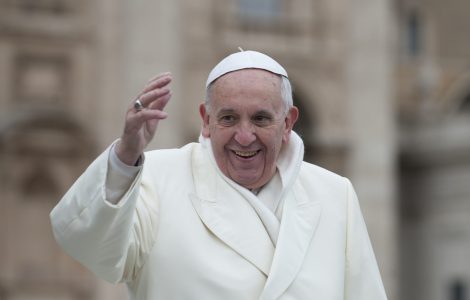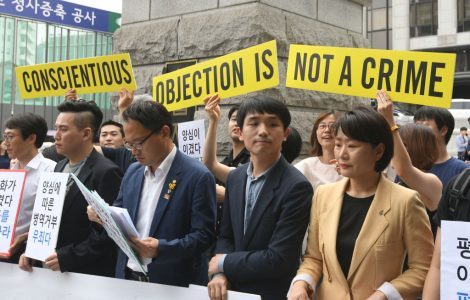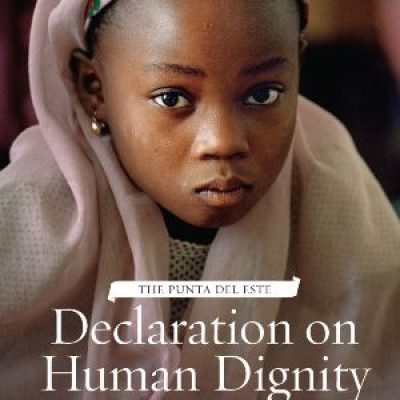Talk About: Law and Religion
Blog of
The International Center
for Law and Religion Studies
Featured Conversations
Recent Posts

Advocating for Religious Freedom—An Inextinguishable, God-Given Human Right
by HE Archbishop Angaelos
In the book of Isaiah, the prophet declares, “The Spirit of the Lord is upon Me, Because the Lord has anointed Me to preach good tidings to the poor; He has sent Me to heal the brokenhearted, To proclaim liberty to the captives, And to open the prisons for those who are bound” (Isaiah 61:1). This is not just the role of religious leaders; this is the role of every person.
The reality, despite many narratives shared around the world, is that faith and religion matter. As others at this Symposium have discussed so eloquently, 80% of the world’s population sees itself as having some sort of religion or belief and regards it as important. I have had the privilege of being born in Egypt, raised in Australia, and then serving for almost 30 years in the United Kingdom. In these different contexts, religion and religious freedom are experienced differently. In some parts of the world, religion is something that can be compartmentalized, something we put in a box and refer to only at times. But in other parts, it is an indistinguishable part of one’s identity and day-to-day life, and to be denied it is to be denied part of one’s actual identity.

Series: The Naming of Religious Groups: A Human Rights Analysis
by Dmytro Vovk, Jeremy Patrick, Alberto Jose Ferrari Puerta, Cǎtǎlin Raiu & Mihai Miron, Mieczysław Różański & Piotr Szymaniec
In this series, contributors discuss the naming of religious entities as a religious freedom issue. Focusing on Australia, Bulgaria, Estonia, Poland, Romania, Spain, and Ukraine, they analyze regulations implemented or considered in these states to restrict the autonomy of religious groups in choosing a name. From the perspective of human rights law, this autonomy, as an aspect of freedom of religion or belief, is not absolute. States are allowed to proportionally interfere in the naming of religious organizations to balance religious autonomy against the rights of others or other legitimate values, such as protection of intellectual property.

Three Observations on the Catholic Charter School Case
by Frederick Mark Gedicks
There is not a lot to be said about the Court’s affirmance here. None of the Justices issued opinions, as is the recent custom in tie votes, and we don’t how the Justices voted (though it’s a good bet that Justices Kagan, Sotomayor, and Jackson, who tend to support separationist results in Religion Clause cases, were for affirmance). The Oklahoma court’s decision is binding precedent only in Oklahoma.
Still, that there is little to say does not mean there is nothing to say. I will venture three observations, about the interaction of the Free Exercise and Establishment Clauses, about the constitutionally jarring possibility of publicly funded sectarian education, and the growing importance of Justice Barrett in Religion Clause cases.

In our new video, Pavlo Smytsnyuk of the Elliott School of International Affairs comments on Pope Leo XIV’s initiatives to bring peace to Ukraine.
Timeline:
0:00 – Pope Francis and the war in Ukraine
5:35 – Pope Leo’s Approach to the Russia-Ukraine War
11:45 – Can the Vatican’s Efforts to Bring Peace to Ukraine Succeed?
Search Topics in Law and Religion
Explore topics such as COVID-19, Gender, Jewish Law, LGBTI+, Marriage, Religious Exemption, and Security
Anti-Extremism | Assisted Dying | Autocephaly | Children | Church-State Relations | Constitutional Space | COVID-19 | Death Penalty | Definition of Religion | Digitalization | Discrimination | Equality | Extremism | Family | Family Law | Freedom of Expression | Gender | Genocide | Hagia Sophia | Human Dignity | Human Rights | In Memoriam | Interfaith Dialogue | Islamic Law | Jewish Law | LGBTI+ | Marriage | Minorities | Peacebuilding | Pluralism | Politics | Race | Reasonable Accommodation | Religious Autonomy | Religious Exemption | Religious Freedom | Religious Institutions | Religious Law | Rule of Law | Secularity | Security | Social Service | Ukraine | Russia | War | Digitalization | Humanitarian Aid | Religion and Constitution
Subscribe to our Monthly Newsletter
Fill out the form below to receive updates on topics in law and religion.




